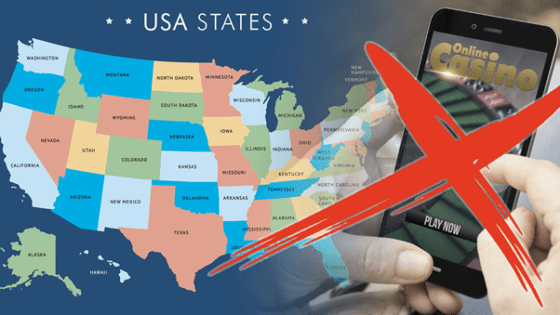In almost every other part of the United States, it is illegal to gamble, but the exceptions to this rule are the cities of Las Vegas and Atlantic City in New Jersey. Even if you are unaware of this and unknowingly took part in a gambling arrangement that spun into being illegal, you could still be charged with gambling wrongdoing and could be slapped with heavy consequences that may result in some severe ramifications.
In situations like these, being aware of your legal rights and the laws governing gambling in your state can be the deciding factor in whether you get to go home safely or whether you get a one-way ticket to a jail cell.

Texas Scenario
Although it is not against the law for residents of Texas to bet at online sportsbooks, it is against the law for sports betting companies to operate within the borders of the state.
To work around this and not perform any illegal acts you are free to place safe and legal bets with any offshore Texas sportsbooks available to the public. The Lone Star State doesn’t really issue licenses for sports betting, so the only online sportsbooks users can legally bet with are offshore ones.
Offshore sites are perfectly legal and safe to use; in fact, American gamblers have been using them for years. When the state of Texas finally passes legislation to allow betting on sporting events, we will revise this list accordingly. This principle applies to many other states in the US, so all you need to do is conduct some research and ensure that you are playing safely and legally!
US Federal Law on Gambling
In recent years, the gaming and gambling industries in the U.S. have experienced a significant expansion. Over the course of the last ten years, the majority of states have passed legislation to expand legalized gaming options, such as governed casino-style games, sports gambling, and lottery systems.
In addition, there has been a meteoric rise in the number of Native American casinos opening their doors, and the number of people gambling online in the United States has skyrocketed in popularity.
Gambling was once against the law in almost the entire continental United States, with the exception of Nevada as well as New Jersey. This was many years ago. However, as time went on, an increasing number of states made various forms of gambling legal.
These states included those that had Indian casinos, bingo as well as poker rooms, off-track betting on horse races, and other forms of gambling. Although some states have legalized certain forms of gambling, others, such as gambling online, are still considered to be “illegal” in the United States.
Nearly every state in the union has enacted legislation that makes at least some form of gambling. Not only is it essential for those involved in the industry of gambling in the United States to understand US gambling laws, but it is also important for ordinary gamblers who want to know whether or not they are permitted to start a fantasy football league, a household poker game, or even an NCAA tournament wagering pool at their place of employment.
The laws governing gambling in the United States have undergone significant revisions as of the time this article was written. What was once deemed illegal on a federal level is now made legal on a state-by-state basis in the United States, with the stipulation that operators of casinos, and in some cases operators of online gambling, apply for the required licenses and permits within the authority in which they wish to operate.
This is the case regardless of whether the gambling is conducted offline or online. Previously, gambling was only permitted in Las Vegas and Atlantic City; however, recently, states such as Colorado, West Virginia, Indiana, Iowa, and Pennsylvania have also legalized the practice, and more and more states in the United States are likely to follow their lead.
So Where Will the US Go From Here?
The future of the gambling industry in the United States – and potentially everywhere else in the world – is unquestionably online, given that estimates place the size of the global market at more than $70 billion.
The number of people who want online access to casinos as well as betting is growing, and a growing number of states are seriously investigating the best route to make this available for their residents. However, these states frequently face opposition from casino owners who really are concerned that their profits will decrease as a result of this.
The government in New Jersey has devised a strategy to get around this problem by requiring that any online casino that wants to conduct business in the state form a partnership with one of the existing casinos in Atlantic City.
The question of whether or not wagering on sporting events through the internet is allowed to be conducted legally is the subject of a case that is currently being heard by the Supreme Court of the United States. The argument put forward by opponents is that it runs counter to an older anti-money laundering law known as the Wire Act of 1961.


